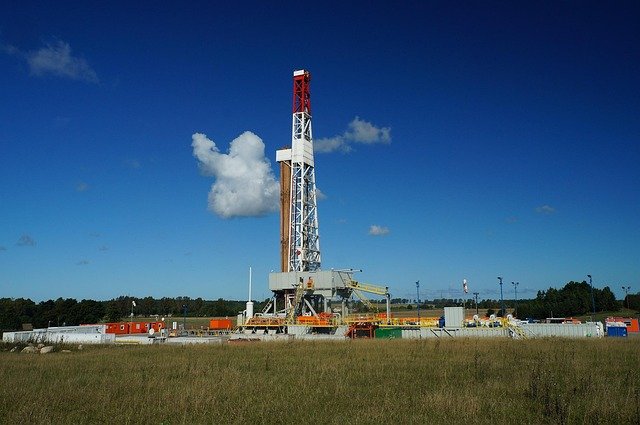Your Complete Guide to Starting a Career on Offshore Oil Rigs
Working on offshore oil rigs offers unique career opportunities in one of the world's most demanding industries. These massive floating structures require skilled professionals to operate complex machinery, maintain safety protocols, and extract valuable resources from beneath the ocean floor. Understanding the requirements, challenges, and pathways into this field can help you determine if an offshore career aligns with your professional goals and lifestyle preferences.

The offshore oil industry represents a significant sector of global energy production, with thousands of workers employed on drilling platforms and production facilities worldwide. These operations require diverse skill sets, from technical expertise to physical stamina, making offshore work both challenging and rewarding for those who pursue it.
Essential Skills Required For Offshore Oil Rig Careers
Offshore oil rig positions demand a combination of technical knowledge, physical capability, and mental resilience. Most entry-level positions require basic mechanical aptitude, ability to follow safety procedures, and willingness to work in confined spaces. Technical roles often require specialized certifications in areas such as welding, electrical systems, or heavy machinery operation. Communication skills are crucial since crew members must coordinate effectively in high-pressure situations. Physical fitness requirements vary by position but generally include the ability to lift heavy objects, work at heights, and maintain alertness during long shifts. Many positions also require swimming ability and comfort working over water.
Understanding The Recruitment Process In Offshore Industries
The recruitment process for offshore positions typically begins with meeting basic eligibility requirements, including age restrictions, medical fitness standards, and background checks. Most companies require completion of Basic Offshore Safety Induction and Emergency Training (BOSIET) or similar certification programs before employment. The application process often involves multiple stages: initial screening, technical assessments, medical examinations, and interviews. Many employers prefer candidates with relevant trade experience, though some offer apprenticeship programs for newcomers. Recruitment agencies specializing in offshore placements can provide valuable guidance through the application process and help match candidates with appropriate positions.
Health And Safety Regulations On Offshore Oil Rigs
Safety regulations on offshore platforms are among the strictest in any industry, governed by international maritime law and national regulatory bodies. All personnel must complete mandatory safety training covering emergency procedures, fire prevention, helicopter safety, and sea survival techniques. Personal protective equipment is required at all times, including hard hats, safety glasses, steel-toed boots, and flame-resistant clothing. Regular safety drills simulate various emergency scenarios, from fires to helicopter evacuations. Medical facilities on rigs are equipped to handle common injuries and illnesses, with procedures for medical evacuations when necessary. Alcohol and drug policies are strictly enforced, with random testing common throughout employment.
Career Advancement Opportunities In Offshore Oil Exploration
Career progression in offshore oil work typically follows established pathways from entry-level positions to supervisory and technical specialist roles. New workers often start as general laborers or maintenance assistants, gaining experience and additional certifications over time. Technical advancement opportunities include becoming certified in specialized equipment operation, inspection techniques, or supervisory responsibilities. Many companies offer internal training programs and support for external certification courses. Leadership positions such as crew chiefs, safety officers, and drilling supervisors require extensive experience and additional qualifications. Some professionals transition to onshore roles in project management, training, or regulatory compliance after gaining offshore experience.
Navigating The Challenges Of Working On Offshore Platforms
Offshore work presents unique challenges that require careful consideration before pursuing this career path. Extended periods away from home, typically ranging from two to six weeks, can strain personal relationships and family life. Living conditions on rigs are communal, with shared sleeping quarters and limited privacy. Weather conditions can be harsh, with operations continuing in challenging sea states and extreme temperatures. The work environment involves constant noise, confined spaces, and potential exposure to hazardous materials. Physical demands include working 12-hour shifts, often in rotating day and night schedules. Mental resilience is essential for coping with isolation, stress, and the responsibility that comes with working in potentially dangerous conditions.
| Position Type | Experience Level | Estimated Salary Range | Key Requirements |
|---|---|---|---|
| Entry-level Laborer | 0-2 years | $45,000-$65,000 annually | BOSIET certification, physical fitness |
| Equipment Operator | 2-5 years | $55,000-$85,000 annually | Trade certification, equipment experience |
| Technical Specialist | 5+ years | $75,000-$120,000 annually | Advanced certifications, specialized skills |
| Supervisory Roles | 7+ years | $90,000-$150,000 annually | Leadership experience, multiple certifications |
Prices, rates, or cost estimates mentioned in this article are based on the latest available information but may change over time. Independent research is advised before making financial decisions.
Starting a career on offshore oil rigs requires careful preparation, dedication to safety, and acceptance of unique lifestyle demands. While the work is challenging and requires significant personal sacrifice, it offers competitive compensation and opportunities for professional growth in a specialized field. Success in offshore careers depends on thorough preparation, continuous learning, and maintaining the highest safety standards throughout your employment.



